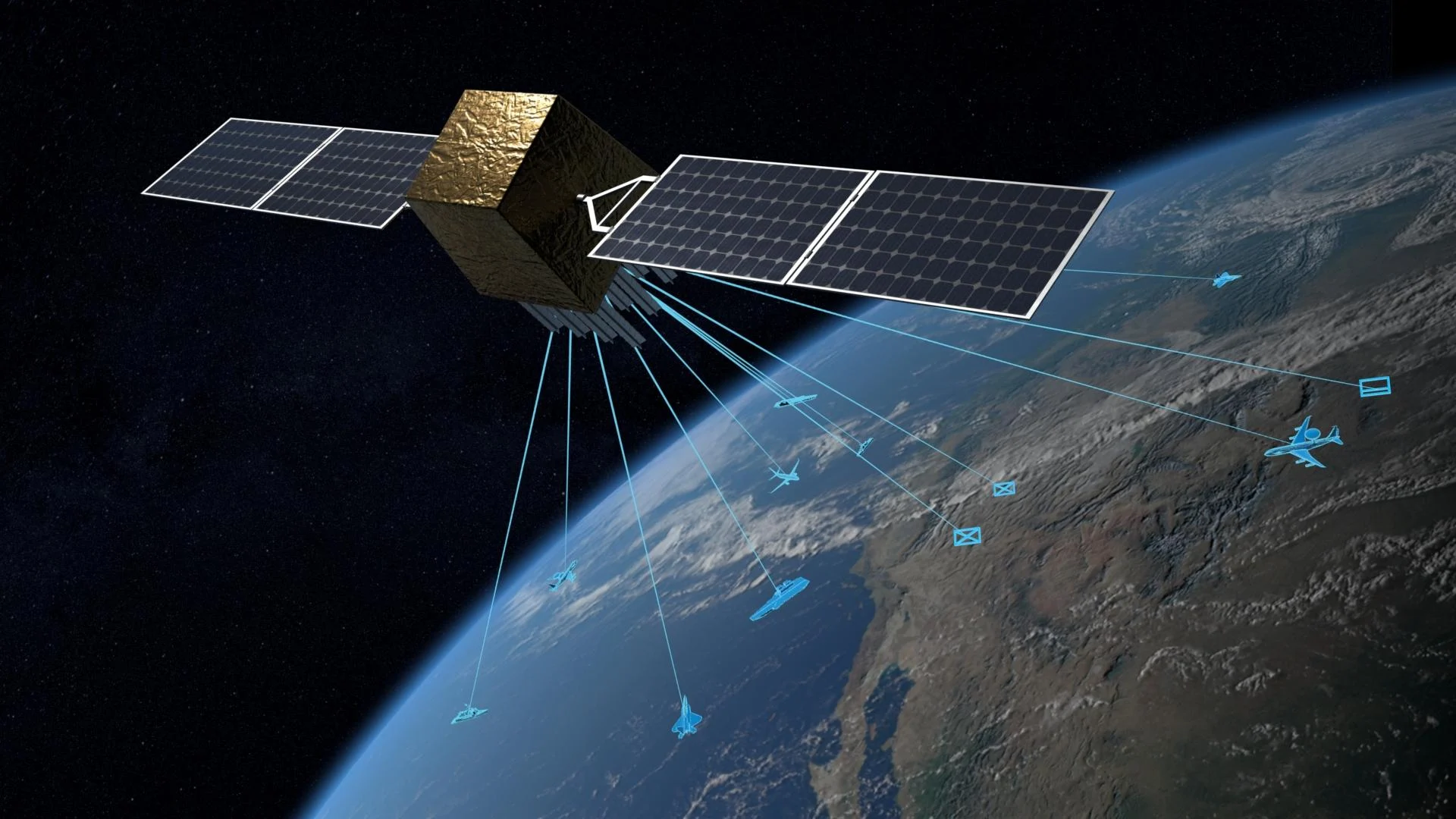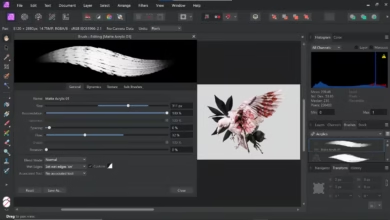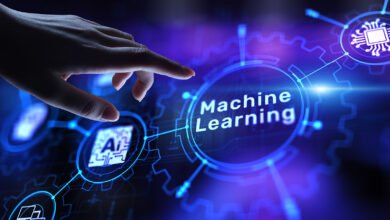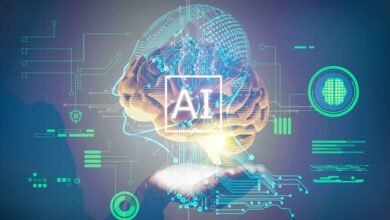Best AI Startup Ideas That Haven’t Been Done Yet
Explore untapped AI startup opportunities in 2025. Discover innovative, profitable artificial intelligence business ideas that haven't been saturated.

The artificial intelligence revolution is accelerating at an unprecedented pace, with <b>AI startup ideas</b> emerging across nearly every industry imaginable. While many entrepreneurs focus on mainstream applications like chatbots and content creation tools, a treasure trove of untapped opportunities exists for those willing to think differently. The global <b>AI market</b> is projected to reach $243.70 billion in 2025 with a compound annual growth rate of 27.67%, making this the ideal moment to launch an innovative <b>artificial intelligence business</b>. However, success in this competitive landscape requires identifying niches where real market pain points intersect with emerging AI capabilities. This comprehensive guide explores the most promising <b>AI business opportunities</b> that haven’t been saturated by major players, offering entrepreneurs the chance to build sustainable, profitable ventures. Rather than competing directly with well-funded incumbents, the smartest approach involves targeting underserved markets where <b>machine learning applications</b> can deliver immediate, measurable value. Whether you’re an aspiring founder seeking your first venture or an existing business looking to expand into emerging technologies, understanding these <b>innovative AI startup ideas</b> will position you ahead of the competition and accelerate your path to market leadership and consistent revenue generation.
Predictive Maintenance for HVAC and Commercial Systems
One of the most underexploited opportunities in the <b>AI startup ecosystem</b> lies in predictive maintenance for heating, ventilation, and air conditioning systems. Commercial building owners spend between $2–4 per square foot annually on HVAC maintenance, with unexpected failures causing expensive emergency repairs and significant operational disruptions. Building managers currently rely on outdated, reactive approaches to maintenance scheduling, which often result in costly downtime and tenant compensation claims. An <b>AI-powered predictive maintenance platform</b> using Internet of Things (IoT) sensors to monitor temperature fluctuations, vibration patterns, energy consumption, and other critical metrics can identify equipment failures before they occur.
By analyzing historical data from hundreds of buildings, your <b>machine learning model</b> can recognize subtle patterns indicating imminent breakdowns, enabling proactive maintenance scheduling. This <b>artificial intelligence application</b> directly addresses a multi-billion-dollar pain point where building operators would gladly pay $1–2 per square foot annually to reduce emergency repairs by 30-40%. Revenue models include recurring subscription fees based on square footage, performance-based pricing tied to repair cost savings, or licensing the model to facility management software providers. The regulatory and data advantages in this niche create natural competitive moats, making it one of the most defensible <b>AI business ideas</b> for 2025.
AI-Powered Environmental Monitoring and Carbon Analytics

<b>Environmental monitoring AI solutions</b> represent a growing segment within the <b>artificial intelligence industry</b> where demand significantly outpaces current supply. Governments and corporations face increasingly stringent carbon reduction mandates, yet existing monitoring tools provide insufficient real-time visibility into emission sources and environmental conditions. An <b>AI startup focused on sustainability</b> could develop intelligent platforms that utilize satellite imagery, IoT sensor networks, and advanced algorithms to detect pollution levels, analyze CO2 emissions at the project level, and track carbon footprint across enterprise operations.
This <b>AI-driven environmental technology</b> combines computer vision, <b>machine learning algorithms</b>, and predictive analytics to transform raw environmental data into actionable insights. Companies pursuing net-zero commitments represent a massive addressable market spanning energy, manufacturing, agriculture, and logistics sectors. Your <b>environmental AI platform</b> could generate revenue through subscription licensing, performance-based fees tied to carbon reduction achievements, or by integrating with existing enterprise resource planning systems. The competitive advantage grows through accumulated proprietary environmental datasets, regulatory expertise, and verified accuracy improvements over time—exactly the type of <b>sustainable AI business idea</b> that venture capitalists actively fund.
AI Agents for Supply Chain Optimization
While supply chain technology has received considerable attention, most existing solutions focus on visibility rather than intelligent optimization. <b>AI agents</b>—autonomous software systems capable of making complex decisions with minimal human intervention—represent the frontier of <b>supply chain AI innovation</b>. These intelligent systems go far beyond traditional <b>artificial intelligence applications</b> by continuously learning from operational data, adapting to market conditions, and autonomously executing optimization decisions.
Small to medium-sized manufacturers struggle with inventory management, demand forecasting, and supplier coordination because enterprise-level solutions remain prohibitively expensive. An <b>AI-powered supply chain platform</b> utilizing <b>machine learning technology</b> for demand prediction, route optimization, and real-time inventory monitoring can be packaged specifically for mid-market manufacturers with annual revenues between $50 million and $500 million. These companies face intense economic pressure to reduce working capital while maintaining operational efficiency—a combination where <b>AI business applications</b> deliver measurable ROI within 6-12 months. Revenue potential appears substantial: a single percentage point improvement in working capital efficiency translates to millions in cash flow benefits. The <b>AI startup market</b> for vertical-specific solutions increasingly rewards platforms that understand industry-specific challenges deeply rather than offering generic capabilities.
Specialized Healthcare AI for Rare Disease Detection
The healthcare sector remains perpetually undersaturated for <b>AI medical applications</b> despite enormous potential. Most clinical AI focuses on common conditions benefiting from large datasets, leaving rare disease diagnosis severely underserved. An <b>AI healthcare startup</b> targeting rare disease detection can leverage <b>deep learning technology</b> and pattern recognition to analyze patient data, medical imagery, and genetic information, enabling faster, more accurate diagnosis of conditions that typically take years to identify. Organizations like diagnostic centers, academic medical centers, and pharmaceutical research institutions face genuine challenges in identifying rare disease patients for clinical trials and treatment.
An <b>artificial intelligence diagnostic tool</b> that dramatically accelerates identification timelines creates enormous value for both patients and the medical-industrial complex. This <b>AI business opportunity</b> combines strong venture funding dynamics with immediate market validation—early adopting hospitals and diagnostic centers actively seek solutions addressing this pain point. Regulatory frameworks, while initially complex, actually create competitive advantages by establishing high barriers to new entrants once approval is achieved.
Mental Health Support Through Emotion-Aware AI Platforms
Mental health represents one of society’s most pressing challenges, with traditional therapy remaining inaccessible to vast populations due to cost, availability, and scheduling constraints. An <b>emotion-aware AI application</b> utilizing advanced natural language processing (NLP) and machine learning could provide personalized mental health support between therapy sessions. This <b>AI-powered wellness platform</b> would allow users to journal through text or voice input, with the system analyzing emotional patterns, sentiment trends, and psychological indicators while suggesting evidence-based coping strategies and interventions.
Unlike chatbots offering generic support, this <b>AI mental health solution</b> would employ sophisticated <b>machine learning models</b> trained on therapeutic methodologies and patient outcome data to deliver increasingly personalized and effective support. The addressable market spans individual consumers, corporate wellness programs, education institutions, and telehealth providers—each representing distinct revenue opportunities. This <b>artificial intelligence business idea</b> aligns perfectly with 2025 market trends, as 33% of Americans now actively prioritize mental health improvements. Monetization models include subscription services, enterprise licensing for workplace wellness programs, or partnership revenue sharing with telehealth providers.
AI-Powered Legal Document Automation for Startups
The gap between demand for legal services and their prohibitive costs creates a substantial market opportunity for <b>AI legal technology</b> startups. Most early-stage entrepreneurs cannot afford experienced legal counsel for contract generation, compliance monitoring, and risk analysis—yet these functions are foundational to business survival. An <b>AI-driven legal platform</b> utilizing <b>machine learning technology</b> for document generation, risk analysis, and plain-English legal explanations could serve hundreds of thousands of underserved founders and small business operators.
This <b>artificial intelligence application</b> would employ natural language generation to produce customized NDAs, employment agreements, service contracts, and compliance documents based on simple user prompts. An integrated legal chatbot would handle frequently asked questions, compliance alerts, and regulatory updates. At an average attorney billing rate of $257 per hour, most startups cannot afford the traditional legal services they need—creating perfect conditions for an <b>AI-powered alternative</b>. This <b>AI business model</b> offers attractive unit economics through subscription pricing, token-based usage fees, or enterprise partnerships with accelerators and venture firms actively supporting portfolio companies.
Emotion-Based AI Recipe Generation and Personalization
Culinary technology offers an unexpected but highly promising <b>AI startup opportunity</b> combining wellness trends with food technology innovation. Rather than simple recipe recommendation algorithms, an <b>emotion-aware recipe AI</b> would analyze user emotional state, mood patterns, nutritional needs, and dietary preferences to suggest meals specifically designed to support psychological well-being. This <b>artificial intelligence application</b> employs advanced <b>natural language processing</b> and machine learning to understand emotional contexts and correlate them with appropriate nutritional profiles and cooking experiences.
Market research consistently shows strong interest in recipe generators with lower competitive saturation compared to mainstream AI business ideas. Monetization streams include subscription services for individual consumers, partnerships with fitness and wellness apps, licensing to meal planning platforms, or integration with smart kitchen appliances. This <b>AI business opportunity</b> benefits from strong food and wellness trend tailwinds while remaining relatively unsaturated in the <b>AI startup market</b>.
AI for Precision Agriculture and Crop Disease Detection
Global food security challenges create enormous opportunities for <b>AI-powered agricultural technology</b> startups. Farmers worldwide lack accessible, affordable tools for early disease detection, yield prediction, and resource optimization—yet these capabilities represent the difference between profit and devastating crop losses. An <b>agricultural AI platform</b> utilizing computer vision, drones, and <b>machine learning algorithms</b> can identify crop diseases in early stages through image analysis of healthy versus diseased plants.
This <b>artificial intelligence application</b> enables smartphone-based or drone-based instant diagnosis available anywhere farmers operate. Early disease detection prevents entire harvest losses, representing enormous value across developing and developed agricultural markets. Revenue opportunities include software licensing per acre, subscription models for seasonal use, or pay-per-diagnosis usage fees. Integration with agricultural equipment manufacturers and commodity trading platforms expands distribution and revenue potential. The <b>AI farming startup</b> market benefits from strong capital availability, climate change urgency, and proven market demand.
Autonomous Navigation Systems for Space and Satellite Operations

Space represents an emerging frontier for <b>artificial intelligence business applications</b> where specialized <b>AI startup opportunities</b> command premium valuations. Spacecraft navigation, particularly for deep space missions where communication delays eliminate real-time human control, increasingly depends on autonomous <b>AI systems</b> making independent navigational decisions. An <b>AI navigation platform</b> utilizing advanced algorithms for trajectory optimization, obstacle avoidance, and fuel efficiency calculation addresses critical needs for aerospace contractors, space agencies, and emerging commercial space companies.
This highly specialized <b>AI business opportunity</b> requires deep domain expertise but offers exceptional defensibility through regulatory requirements, mission-critical performance standards, and long development cycles. Startups in this niche can pursue partnerships with established aerospace contractors, government space agencies, or emerging commercial space ventures. While market size appears smaller than consumer-facing opportunities, unit economics and long-term contracts support sustainable, highly profitable businesses.
Cybersecurity AI with Threat Hunting and Anomaly Detection
<b>AI-powered cybersecurity platforms</b> represent one of the highest-growth segments within the broader <b>AI startup ecosystem</b>. While established security firms offer outdated signature-based detection, emerging threats evolve faster than traditional defense mechanisms can adapt. An <b>artificial intelligence cybersecurity application</b> employing <b>machine learning technology</b> for proactive threat hunting and real-time anomaly detection identifies vulnerabilities before exploitation.
These intelligent systems continuously learn from emerging threat data, adapting their detection patterns and response protocols to counter novel attack vectors. Monetization models include subscription licensing, security assessment consulting services, or licensing <b>machine learning models</b> to other cybersecurity firms. This <b>AI business opportunity</b> serves organizations from small enterprises to large corporations—each facing increasing cyber threats and regulatory compliance pressures. Early adopters gain critical competitive advantages as regulatory frameworks increasingly mandate sophisticated AI-powered threat detection systems.
Intelligent Data Monetization and Quality Assurance Marketplaces
Data represents the fundamental input enabling most <b>artificial intelligence applications</b>, yet significant quality and availability gaps constrain <b>AI innovation</b> across industries. An <b>AI-powered data marketplace</b> could curate, quality-assure, and license high-quality datasets specifically for training <b>machine learning models</b> in specialized verticals.
This <b>artificial intelligence business idea</b> would manage annotated medical images, labeled legal documents, industrial sensor readings, or other domain-specific datasets that command premium prices. The startup serves as an intermediary between data holders (hospitals, law firms, manufacturers) and <b>AI companies</b> requiring training data. Revenue streams include marketplace commissions, licensing fees, or data quality verification services. This <b>AI startup opportunity</b> benefits from structural data scarcity in emerging AI application areas while creating defensible advantages through proprietary dataset accumulation and quality standards.
More Read: How to Start an AI Company with Limited Resources
Conclusion
The <b>AI startup landscape</b> in 2025 extends far beyond saturated categories like chatbots and generic content tools—innovative entrepreneurs should focus on underserved niches where <b>artificial intelligence technology</b> solves genuine problems that enterprises and consumers actively prioritize. The most promising <b>AI business ideas</b> combine three elements: demonstrable market pain points, insufficient existing solutions, and strong willingness to pay. Whether pursuing <b>AI-powered predictive maintenance</b>, specialized healthcare applications, sustainability-focused technologies, or emerging niches like emotion-aware platforms, successful <b>AI startups</b> will be those that understand their target markets deeply, build defensible competitive advantages through proprietary data or specialized expertise, and execute relentlessly.
The window for capturing these opportunities won’t remain open indefinitely as larger competitors inevitably enter profitable niches—entrepreneurs ready to move quickly with focused <b>AI innovation</b> will capture outsized value. By studying real customer challenges, validating market demand before extensive development, and building solutions specifically designed for their chosen verticals, founders can build category-defining <b>artificial intelligence companies</b> positioned for exceptional growth and profitability throughout the next decade.











